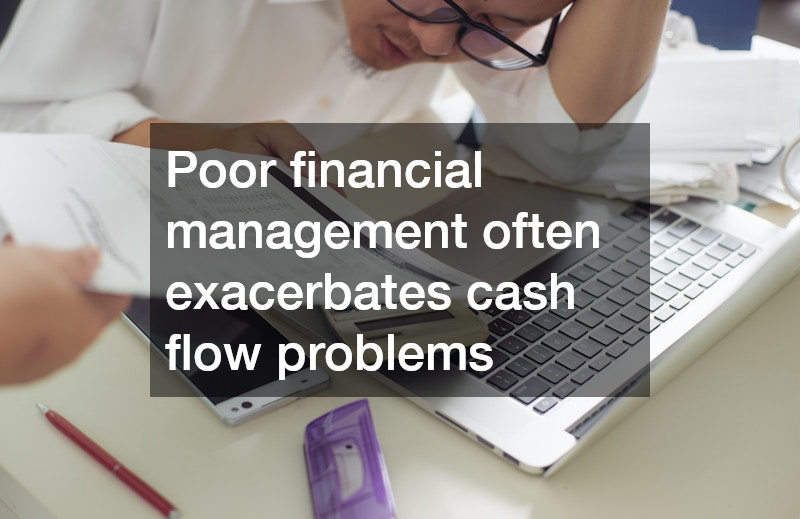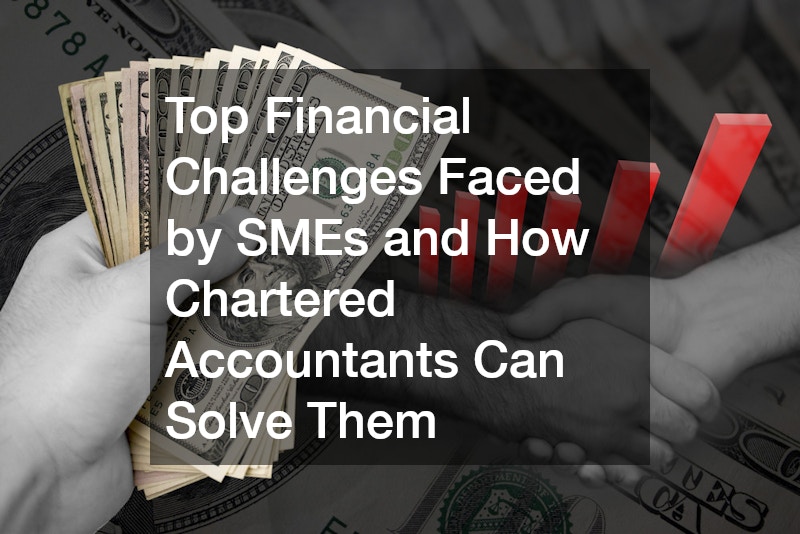Small and Medium Enterprises (SMEs) face unique financial hurdles that can hinder their growth and sustainability. This article explores these challenges and examines the crucial role chartered accountants play in navigating these obstacles.
1. What Are the Common Cash Flow Issues Faced by SMEs?
Understanding the Causes of Cash Flow Problems
Cash flow issues are among the top financial challenges that SMEs face.
Delayed payments from clients and customers can severely hamper a business’s ability to maintain liquidity.
Poor financial management often exacerbates cash flow problems, making it difficult for SMEs to cover their operational costs. Many SMEs also struggle with effectively forecasting revenue and expenditures, which leads to cash shortages.
Fluctuations in demand and seasonal variations further complicate cash flow management for small businesses. This volatility can make it difficult for SMEs to plan and allocate resources effectively across different periods.
Strategies Chartered Accountants Use to Improve Cash Flow
Chartered Accountants employ several strategies to assist SMEs in enhancing their cash flow management. They analyze cash flow statements to identify patterns and potential areas for improvement.
By developing detailed budgets and projections, Chartered Accountants help SMEs implement disciplined financial management practices. They also advocate for robust invoicing and collections processes to ensure timely payments.
Moreover, Chartered Accountants leverage their expertise to advise SMEs on effective cost-cutting measures. By optimizing operating expenses, businesses can maintain healthier cash reserves.
2. How Can SMEs Optimize Their Financial Planning?
Importance of Accurate Financial Forecasting
Accurate financial forecasting is vital for SMEs to make informed strategic decisions. It provides a roadmap for dealing with uncertainties and allocating resources efficiently.
When SMEs are equipped with precise forecasts, they are better positioned to anticipate financial needs and identify growth opportunities. Forecasting helps in setting realistic sales goals and investment plans.
Chartered Accountants empower SMEs by providing comprehensive insights into market trends and financial data. Armed with these forecasts, SMEs can prioritize projects and plan for contingencies.
Role of Chartered Accountants in Enhancing Financial Planning
Chartered Accountants are instrumental in crafting customized financial plans for SMEs. They translate complex financial information into actionable strategies that align with the business’s objectives.
By offering expert advice, they help SMEs develop robust budgeting and forecasting processes. Chartered Accountants ensure that financial plans are adaptable and resilient in the face of market changes.
These professionals also assist in identifying and mitigating potential financial constraints. By establishing sound financial frameworks, Chartered Accountants guide SMEs on the path to sustainable growth.
3. What Financial Risks Do SMEs Commonly Encounter?
Identifying Financial Risks and Vulnerabilities
SMEs encounter a variety of financial risks that can impact their stability and performance. Market volatility can lead to unpredictable revenue streams, putting pressure on cash reserves.
Credit issues also pose significant risks, as SMEs often rely on external financing to support operations. Difficulties in securing or servicing debt can hinder growth and business continuity.
In addition, SMEs are vulnerable to fluctuating interest rates and currency exchange risks. These factors can lead to unexpected costs and affect profitability.
Mitigating Risks Through Expert Guidance
Chartered Accountants play a crucial role in helping SMEs identify and mitigate financial risks. They conduct thorough risk assessments and advise on strategies to safeguard the business against uncertainties.
By developing risk management frameworks, Chartered Accountants enable SMEs to anticipate potential disruptions. They provide guidance on diversification and hedging strategies to protect assets.
In this way, Chartered Accountants empower SMEs to navigate financial challenges with confidence. Their strategic insights help businesses adapt and remain resilient in a volatile market landscape.
4. How Can SMEs Access Funding and Investment Opportunities?
Challenges in Securing Financing for Small Businesses
Accessing funding is a persistent challenge for many SMEs. Lenders and investors often view small businesses as high-risk, limiting their financing options.
An SME’s lack of collateral and credit history can further complicate the process. Without sufficient capital, SMEs may struggle to expand and pursue new ventures.
Funding barriers can prevent SMEs from taking advantage of market opportunities. As a result, businesses may miss out on growth and innovation prospects.
Chartered Accountants as Catalysts for Funding Success
Chartered Accountants are instrumental in improving SMEs’ chances of securing funding. They assist in preparing detailed financial reports that instill confidence in potential investors.
By crafting compelling business plans and financial projections, Chartered Accountants help SMEs articulate their value proposition. This enhances their ability to attract investment and financing partners.
Moreover, Chartered Accountants leverage their networks to connect SMEs with potential funding sources. Their guidance is essential in successful fundraising efforts and in structuring favorable financing agreements.
5. How Does Compliance Affect SME Financial Management?
Understanding Compliance Obligations
Compliance with regulatory requirements is a critical aspect of SMEs’ financial management. Failure to adhere to these obligations can result in penalties and legal challenges.
SMEs must navigate a complex landscape of tax codes, labor laws, and industry-specific regulations. Keeping abreast of evolving compliance standards is essential to avoid financial penalties.
Compliance intricacies demand time and expertise, which can strain an SME’s resources. Neglecting these requirements can tarnish a business’s reputation and customer trust.
Ensuring Compliance with Chartered Accountants’ Expertise
Chartered Accountants play a vital role in helping SMEs maintain compliance. They provide detailed guidance on navigating regulatory requirements and implementing necessary controls.
By assisting in the preparation and submission of accurate financial reports and tax documents, Chartered Accountants ensure that SMEs meet their obligations timely. This minimizes the risk of costly penalties.
Their expertise enhances an SME’s credibility with stakeholders and regulatory agencies. With Chartered Accountants’ support, SMEs can focus on their core operations while maintaining regulatory integrity.
Conclusion
In conclusion, SMEs face a myriad of financial challenges that require strategic solutions. Chartered Accountants provide invaluable support in addressing these issues, fostering financial stability, and promoting business growth.
.


